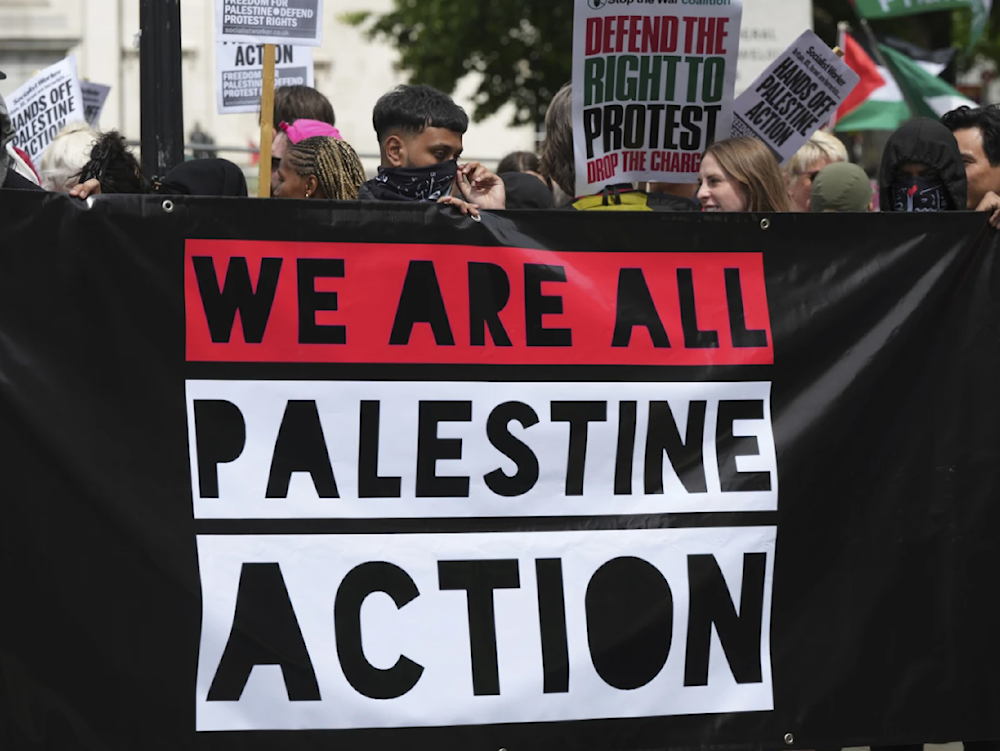Palestine Action wins bid to defy UK ban under anti-terrorism laws
The High Court has ruled that the argument Palestine Action's co-founder presented is "reasonably arguable".
-

Demonstrators hold up a banner during a protest by Palestine Action group in London on June 23, 2025 (AP)
Huda Ammori, co-founder of the pro-Palestinian campaign group Palestine Action, won permission on Wednesday to proceed with a legal challenge against the British government’s decision to ban the group under anti-terrorism laws.
Ammori petitioned London’s High Court to allow a full judicial review of the proscription, which the government justified by alleging the group had committed or supported acts of terrorism.
Founded in 2020, Palestine Action, which defines itself as a direct action movement, has long targeted British companies linked to the Israeli arms industry, most notably the Israeli security firm Elbit Systems. The group has referred to Elbit as its “main target” in efforts to halt what it calls the UK’s complicity in Israeli war crimes, particularly the genocide in Gaza.
According to the UK’s Labour-led government, the group has caused millions of pounds in damages through operations at a Thales factory in 2022, an Elbit site in 2023, and the more recent RAF base incident. Home Secretary Yvette Cooper argued the group’s actions crossed the line from protest to criminal violence, stating, “There is no place for violence or criminal damage in legitimate protest. We must take a zero-tolerance approach in the interests of national security.”
Earlier appeal rejected
Earlier this month, the High Court rejected Ammori’s request to suspend the ban. A subsequent emergency appeal also failed, and the ban officially came into force just after midnight on July 5.
Under the UK’s proscription laws, membership in Palestine Action is now a criminal offense, carrying a maximum sentence of 14 years in prison.
High Court Judge Martin Chamberlain granted Ammori permission to pursue a judicial review, ruling that her argument, that the ban disproportionately interferes with her and others’ rights to freedom of expression, is "reasonably arguable".
Since the proscription took effect, dozens of individuals have been arrested for displaying placards allegedly supporting the group. Ammori’s legal team also claims that expressions of support for the Palestinian cause more broadly have drawn increased police scrutiny.
Meanwhile, Home Secretary Yvette Cooper has defended the ban, stating that while protest is legitimate, violence and criminal damage are not. She cited the group’s actions, including breaching a military base and damaging two aircraft, as justification for its designation under anti-terror laws.

 3 Min Read
3 Min Read








